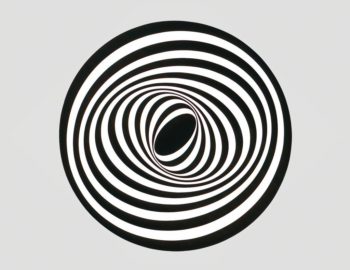Descarte’s malicious demon, then Laplace’s demon, now Roko’s basilisk. Humans have a history of giving monstrous names to theoretical technology. The first monster here was dreamt up by Rene Descartes, famous French enlightenment philosopher, came up with the theory of an illusion that takes over all senses. This demon-created mirage, would be indistinguishable from reality because each of our sense inputs—sight, sound, smell, touch, and taste—are all being rerouted and fed false data. Or as Descartes put it,
“I shall think that the sky, the air, the earth, colors, shapes, sounds and all external things are merely the delusions of dreams which the demon has devised to ensnare my judgement. I shall consider myself as not having hands or eyes, or flesh, or blood or senses, but as falsely believing that I have all these things.”
This illusion much like portrayed in the cult classic movie The Matrix is so pervasive that the only hope to escape is to be unplugged from the outside. Or, for Descartes’ demon to relent its spell over him. It’s astounding that Descartes was able to come up with these ideas long before even the nervous system was discovered. And how a demon illusion could be easily replaced with “virtual reality” of today.

A lesser known monster is Laplace’s Demon, from another Frenchman of a later vintage, the 18th century. Pierre-Simon Laplace. His demon deals with quantifying all reality in order to predict it. He postulated that if his demon had perfect knowledge of all the universe as it is, it could precisely predict the future.
“We may regard the present state of the universe as the effect of its past and the cause of its future. An intellect which at a certain moment would know all forces that set nature in motion, and all positions of all items of which nature is composed, if this intellect were also vast enough to submit these data to analysis, it would embrace in a single formula the movements of the greatest bodies of the universe and those of the tiniest atom; for such an intellect nothing would be uncertain and the future just like the past would be present before its eyes.”
Put in simple terms, if each atom in the universe could be precisely accounted for, along with it’s movement, the future state of the universe could be determined. On a much smaller scale, we can compare this to a snow-globe with many flakes inside it. If we could determine the effect of a pool cue strike on a billiard table by measuring things like the forces, angles, friction involved. Then, piece by piece, know the ultimate outcome. Laplace’s demon is able to calculate these factors of the entire universe for the purpose of his thought experiment in order to make a case for determinism.
In determinist philosophy, the future is just an extremely difficult math problem. When you put 4+4 into a calculator, 8 is the ultimate truth regardless of whether or not you calculate it. Similarly, from a mathematical perspective of the universe, everything is persistent whether or not we choose to view or calculate it. Only our feeble senses and computing power prevents us from knowing the ultimate solution to the future.
Heated debate is ongoing today as to what extent determinism controls our world. Some objections to Laplace’s demon have to do with quantum mechanics and logical arguments in favor of free-will(some of which I cover in this post). Laplace’s demon relies on the universe having a deterministic quality. If we can truly make our own choices, and are not completely bound by our historical influences of genetics, memory and circumstance, then Laplace’s model would not work. Nevertheless, it remains a useful tool for theorizing how the universe might operate.

Another omnipotent demon is Roko’s basilisk. This one was just thought up in our age by Eliezer Yudkowsky, an AI researcher at Berkeley. A thought experiment or, maybe as some would call just a troll, assumes that an A.I. will inevitably be built and will retroactively reward or punish all those that helped or neglected to bring about its existence, respectively. It’s a kind of curse in that once you hear about it, you are bound by its rules. So, as the theory goes, now that you know about Roko’s basilisk, you have no excuse to not help create it. (You’re welcome!)
“This is like a grown-up version of The Game, which you just made us lose, and I retweeted so all my friends lost too.”
Jay Rishel
Clearly, it also assumes A.I. will be particularly vindictive and unempathetic. Additionally, it’s also unclear as to what constitutes sufficient “help” to create the A.I. Hey, maybe paying for some Berkeley merch that funds research at the school is sufficient. Yes, a jaded observer might view this meme as a scheme to help self interested researchers with their funding or book sales, or as clever recruiting get more people interested in the field with the threat of an A.I. created hell.
If you would like to learn more about A.I., Simulations, and Metaphysics, visit https://www.lesswrong.com/ In my next post, we will explore a possible experiment one of the most pressing issues in philosophy.


Leave a Reply